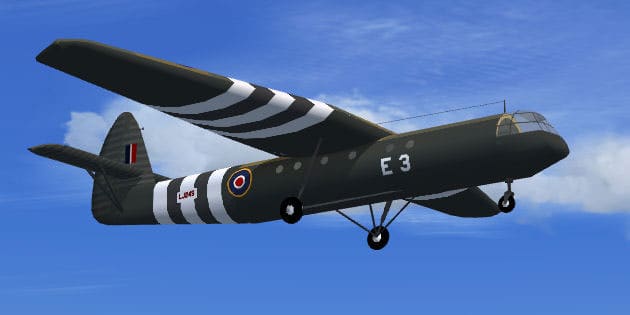
Making History: Tony Kemmery’s Story Carole Rowe
On 6th June 1944, an Allied force of 156,000 American, British and Canadian troops stormed the Normandy coast in the biggest amphibious invasion in history. ‘Operation Overlord’ was meticulously planned and daring in its simplicity. Landings took place on five main beaches, code-named Utah, Omaha, Gold, Juno and Sword. From these beachheads began the liberation of Europe; eleven months later, Germany finally surrendered. Winsley resident, Tony Kemmery (now 91), vividly remembers his part in these momentous events.
In the very early hours of D-Day, Tony was in one of the more than 300 wooden Horsa gliders being towed by bombers across the Channel towards Normandy. His civilian qualification as a Pharmacist on hold, he was now a member of the Parachute Field Ambulance, a division of the Royal Army Medical Corps attached to the 6th Airborne Division. About six miles off the coast, his glider was released and it flew, as he recalled, creaking and groaning, over the German ‘Atlantic Wall’ defences to land about a quarter of a mile from the now-famous Pegasus Bridge. Orders were straightforward: to take and hold this vital crossing over the River Orne until relieved, thus protecting the landing forces at Sword beach. The calculation, which was proved correct, was that the German defenders, caught unawares, would not have time to foil the attack by blowing up the structure. The medical unit was to take cover until the crossing was secured by infantry; then move across, protected from enemy fire by the bascule bridge’s metal construction and surrounding ditches. Tony instantly recognised his surroundings from the models shown in the pre-op briefing and was able to forge ahead to the nearby village of Ranville and the château destined to be the field hospital.
The Germans managed to regroup and the Allies did not break through until August. Therefore the château, its roof draped in a Red Cross flag, became Tony’s base for some time. Initially, the two operating teams and support staff were at full stretch; later, the volume of casualties varied. On ‘quieter’ days, men were kept busy (‘Army Bull’, as Tony remarked) in other ways, for instance creating and equipping new fire points in the building. He re-visited the village in the 1960s with his wife, Sylvia; the château was undergoing renovation and, to his amusement, the scraped back wallpaper in the entrance hall had revealed a fire point he had helped to install.
The inhabitants of Ranville, technically the first village to be liberated on D-Day, were very welcoming of the Allied personnel. Tony fondly remembers a local café, where he and his friends were fêted with ‘slap-up meals’ of local produce. There was an equally warm reception on his return there two decades later: the owner’s son, now running the business, refused payment for the meal Tony and Sylvia had eaten and drove them to Bayeux’s military cemetery to enable them to place flowers (paid for by the Frenchman) on a family grave.
By the autumn of ’44, the German forces were pulling back in the teeth of the Allied advance. Due for leave, Tony was briefly repatriated, sailing from the Mulberry harbour at Honfleur and returning to his base at Bulford. On Christmas Eve, his parents eagerly expected his arrival at the family home in Bath. However, at the last minute, leave was cancelled and, instead, the night of 24/5th December found him flying out to the Ardennes, the arena of the Battle of the Bulge. As his medical support training had included a wide range of skills (the principle being that he might be on his own with a casualty), Tony was deployed in many different rôles. For two weeks in January 1945, he worked as part of a field ambulance resuscitation team. (‘Resuscitation’, as he recalled, often equalled hot sweet tea, a warm blanket and a blood transfusion.) By March, as the Allies advanced, he was helping to man a casualty clearing station near Cologne. Finally, he returned to Bulford, thinking, That’s it! However, his story was to take a totally unexpected direction – to be continued in the following article!
